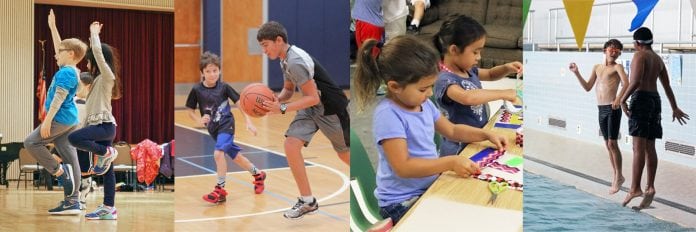
Afterschool programs with positive, responsive, and organized environments can have academic benefits for students, finds a new study by NYU Steinhardt School of Culture, Education, and Human Development.
Young people growing up in urban, low-income communities spend significant time in publicly funded afterschool programs. Unlike schools, which grow increasingly segregated and involve more individual instruction as children grow older, afterschool programs are spaces where instructors, often similar to the students in age and background, can facilitate diverse, productive interactions that help youth reach social and academic goals.
Because of their unique position at the juncture of school, neighborhood, and home, afterschool programs may be particularly important for youth on a path toward school disengagement or risky behaviors.
Given the potential of afterschool programs to support youth in urban, low-income communities, the researchers examined the role that the afterschool classroom environment plays in terms of academic outcomes for youth with and without social and behavioral difficulties.
- Read more: Does Money Affect Children’s Outcomes
The researchers used data gathered from five afterschool programs run by a single nonprofit. The 256 youth studied, ranging from third through eighth grade, were predominantly Latino and African-American.
In both the fall and spring, the researchers collected three types of academic outcome measures from youth and staff, including reading skills, youth perceptions of their academic abilities, and academic engagement. They also conducted observations in the fall to measure the extent to which afterschool classrooms were positive, responsive, and organized, looking for factors such as supportive relationships between youth and adults, student engagement in activities, and chaos in the classroom.
The researchers found that a positive afterschool environment – one with good social dynamics, responsive instruction, and behavior management – predicted stronger academic skills and youth perceptions of their academic abilities across one year.
The association between a positive environment and improvement in academic skills was magnified for students with social and behavioral difficulties, while students without these difficulties saw a greater boost in their perceptions of their own academic abilities. No significant link was found between the classroom environment in the fall and students’ academic engagement in the spring; however, in classrooms with more positive environments, youth with social and behavioral problems were more academically engaged.
The researchers urge the education community to consider the role of afterschool classrooms and instructors in promoting supportive interactions and advancing academic outcomes for at-risk youth during this important transition to adolescence.
This article is included as part of a special issue of the Journal of Emotional and Behavioral Disorders entitled “Social Dynamics Management and the Prevention and Treatment of Emotional and Behavioral Disorders.”




































